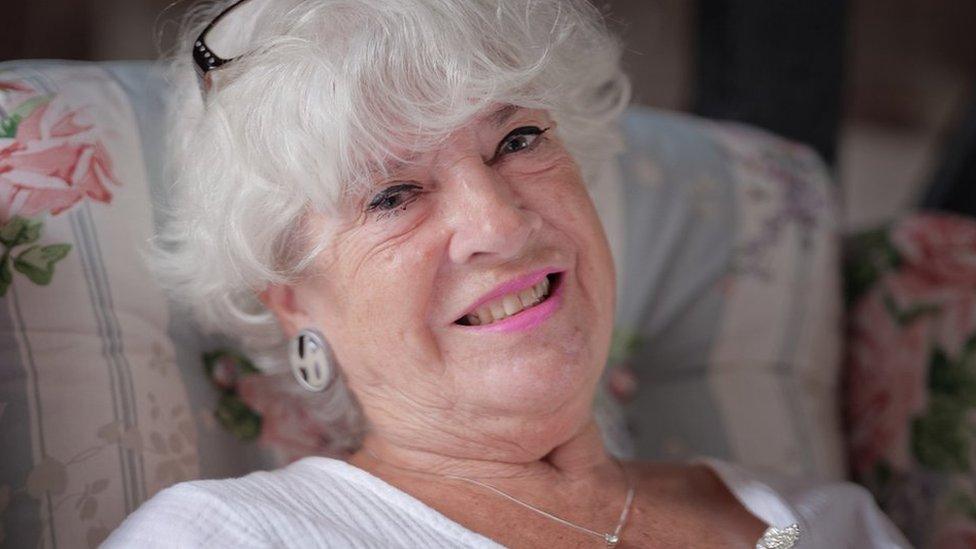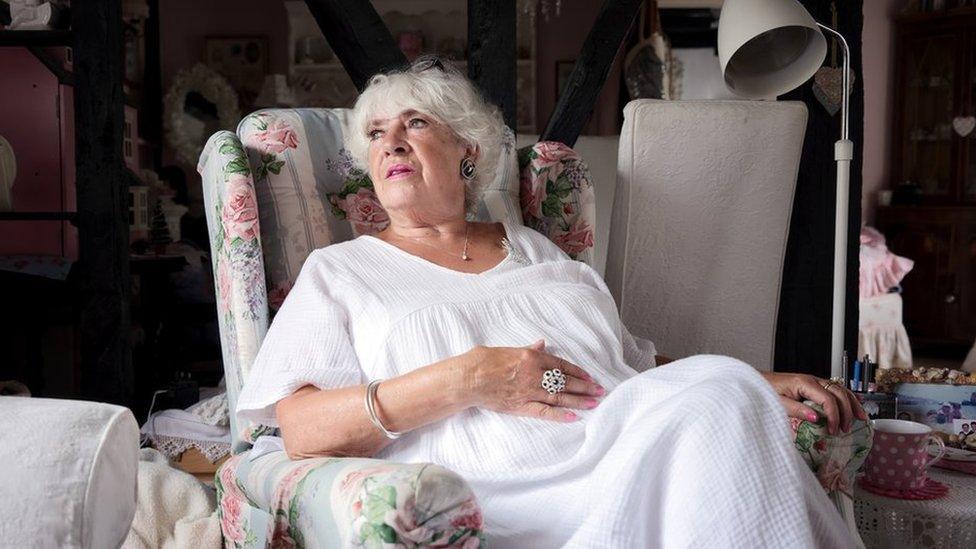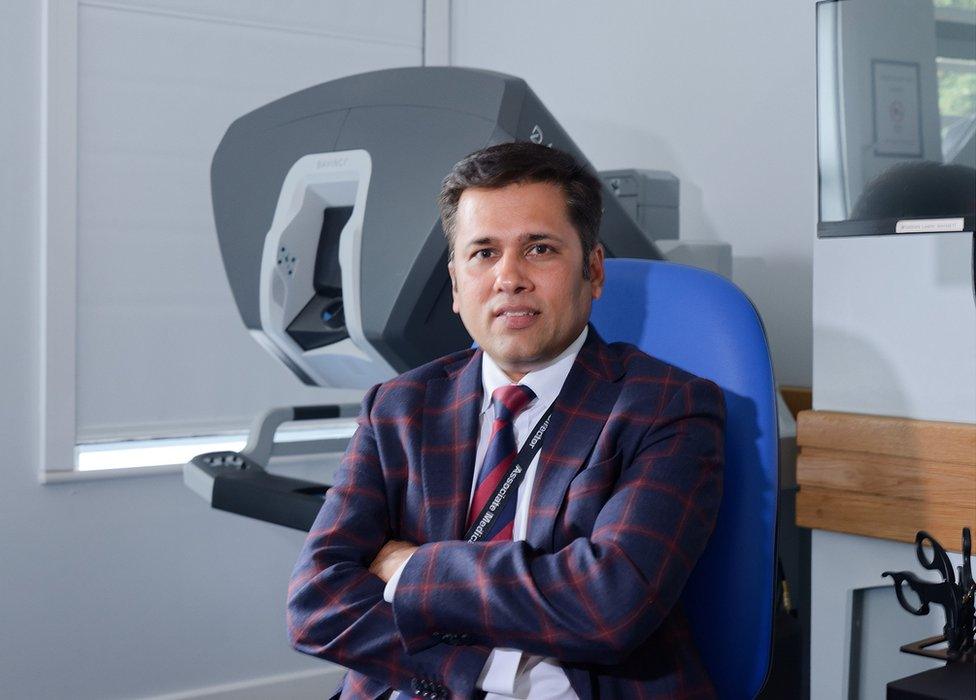NHS at 75: Robotic arms used in delicate colon surgery
- Published

Tests revealed Patricia McDonald was anaemic and a scan found an upper section of her colon needed to be removed
A woman who allowed the BBC to follow her through a major surgical operation said she was recovering "well" and had already been for a walk.
On Wednesday, Patricia McDonald, 77, from Coggeshall, north Essex, had an upper section of her colon removed.
Surgeons used a high-tech robotic system during the procedure at Colchester Hospital, on the day the NHS marked its 75th anniversary.
Speaking to the BBC on Thursday, Mrs McDonald said: "I feel a bit bruised."
A small piece of Mrs McDonald's colon was removed and then the two ends attached during the operation under general anaesthetic.
Tools attached to robotic arms followed a surgeon's moves during the procedure
The surgical team involved in Mrs McDonald's operation said her stay would be shorter and the pain experienced far less than if she had undergone traditional open surgery.
Mrs McDonald, who has seven grandchildren aged between six and 26, thanked the team for all their work and support.
"I've been packing my bag and I have been for a little walk," she said. "I have had a bit of pain, but during the night I was able to press a button which provided pain relief.
"They have sent a piece of my colon and a lymph node off to the lab for testing and I I have my fingers crossed. We will have to wait and see if they find anything."

Mrs McDonald had the operation under general anaesthetic at Colchester Hospital
Consultant surgeon Mr Subash Vasudevan used one of the hospital's three £2.5m-a-piece surgical robots to remove a section of Mrs McDonald's colon.
The hospital is run by East Suffolk and North Essex NHS Foundation Trust, which has become one of the UK's leading centres for robotic surgery.
"We want to see if it is benign or malignant," said Mr Vasudevan. "A lot happens behind the scenes in the laboratory."

Mr Vasudevan used one of the hospital's surgical robots to remove a section of Mrs McDonald's colon
Asked about the lack of pain or discomfort Mrs McDonald felt, Mr Vasudevan said: "That is very common with colon cancers or colon lumps on the right hand side.
"People can be slightly anaemic but don't have any pain - pain is a very, very late feature of most cancers."
He said the first signs of an issue with the lower part of the colon often included bleeding or needing to use the toilet more often.
But that is often not the case with the upper parts.
"For anything to get big enough to block the upper colon it takes a lot of time," he said.
"So the common symptoms are for people to go to their GP saying they feel a bit lethargic, they have their blood tested, their haemoglobin is low and that is quite a common presentation."
The trust said its surgical robots were used to treat patients with bowel, colon, rectal and gynae cancers, endometriosis, urology and knee replacements.
It said robotic surgery was "better for patients" because it was "minimally invasive", resulting in "fewer complications, faster recovery and less pain".

Find BBC News: East of England on Facebook, external, Instagram, external and Twitter, external. If you have a story suggestion email eastofenglandnews@bbc.co.uk, external